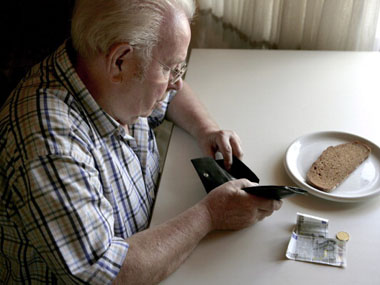India is the world’s second-most populous country and home to a growing elderly population as well. According to the data provided by the United Nations Department of Economic and Social Affairs (UNDESA), India had more than 91.6 million elderly in 2010, with an annual addition of an estimated 2.5 million to the elderly category. The UNDESA estimates that there will be 158.7 million elderly people in India by 2025 and by 2050 this population group is expected to surpass that of children below 14 years in India. Taking care of the health of this growing population of the elderly in India is an immense responsibility and the continuing COVID-19 pandemic has brought it into more focus. Studies published since the beginning of the pandemic maintain that if older people contract the COVID-19 infection, their risk of developing severe disease and mortality are much higher. But while COVID-19 continues to be a concern, we must not forget that winter also poses severe health risks for the elderly. So, if you have an elderly person or persons living with you during winters, especially the winter of 2020-2021, taking care of them will require extra care and attention. It’s very important that you get regular health checkups and doctor consultations for them so that you can avoid emergency hospitalisations, especially since the pandemic is still raging. The following are some of the key health issues you should be aware of during this winter season. 1. COVID-19 and other infections In a chapter dedicated to the elderly in India in the 2012 book, Aging in Asia: Findings From New and Emerging Data Initiatives, researchers suggest that while chronic non-communicable diseases (NCDs) are emerging as causes of acute illness among the older population, infectious diseases continue to pose a bigger threat. Given the findings during the COVID-19 pandemic, there is no denying that viral, bacterial and fungal infections put the elderly at increased risks especially if they have comorbidities. The Indian Ministry of Health and Family Welfare recommends following respiratory and hand hygiene practices, social distancing and avoiding meeting visitors at home for the elderly. It is also recommended that older people stay at home as much as possible and cleanliness, proper nutrition and regular exercise are arranged for them. These steps can not only help keep COVID-19 at bay but also other infections. A study published in Human Vaccines & Immunotherapeutics (2018) also suggests taking precautions against influenza during winter as hospitalizations and morbidity due to this infection also increase among the elderly. 2. Body heat and cardiovascular health Winter inevitably means lower temperatures but what many don’t realise is that your body’s capacity to adapt to winter changes as you age. This is the reason why maintaining good body and atmospheric temperatures are vital for the elderly during the winter season. A study published in Energy Policy in 2019 says that adding more warm and nutrient-dense foods in the diet of the elderly is as important as wearing more layers, using heaters and body warmers during winters - especially for cardiovascular health. The American Heart Association says that insulation is very important during winters for the elderly because not only can exposure to low temperatures slow the heart rate dangerously but also increase the risks of accidental hypothermia, heart attacks and strokes. 3. Respiratory health issues A study published in Clinical and Translational Energy in 2018 indicates that indoor and outdoor climate shifts increase the risk of respiratory illnesses among the elderly as well as other age groups. These illnesses don’t just include common cold and cough but more severe illnesses like chronic bronchitis, chronic obstructive pulmonary disease (COPD), asthma and even pneumonia. In many cases, the onset of these diseases can be traced to winter and cold exposure among the elderly so taking specific precautions against them is vital to reduce both morbidity and mortality. 4. Bone, muscle and joint problems Winter poses major obstacles in physical activity levels among the elderly and this is especially risky since this population is also at risk of developing age-related bone, muscle and joint problems. A study published in BMC Musculoskeletal Disorders in 2019 states that the elderly tend to experience more musculoskeletal pain during winters, especially if they already suffer from rheumatoid arthritis, osteoporosis, gout, sarcopenia and arthritis. Improving physical activity levels while at home, better nutrition and appropriate treatment and care provided by healthcare professionals are all therefore important to manage these issues during the winter season. 5. Mental health issues Restricted mobility due to cold winters and COVID-19 restrictions can not only increase musculoskeletal problems but also mental health issues among the elderly. A study published in BMC Geriatrics in 2015 shows that decrease in physical activity levels among the elderly in winters leads to increased risk of cognitive decline as well as depression and seasonal affective disorder (SAD). An older study published in the Journal of Nutrition, Health and Aging (2006) also suggests that the incidence of SAD and other mental health issues among the elderly may also increase due to lack of sunlight and decreased vitamin D levels. This study recommends vitamin D supplementation for the elderly during winters may help keep mental health problems at bay. For more information, read our article on COVID-19 prevention tips for older people. Health articles in Firstpost are written by myUpchar.com, India’s first and biggest resource for verified medical information. At myUpchar, researchers and journalists work with doctors to bring you information on all things health.
Taking care of the health of this growing population of the elderly in India is an immense responsibility and the continuing COVID-19 pandemic has brought it into more focus
Advertisement
End of Article


)

)
)
)
)
)
)
)
)



